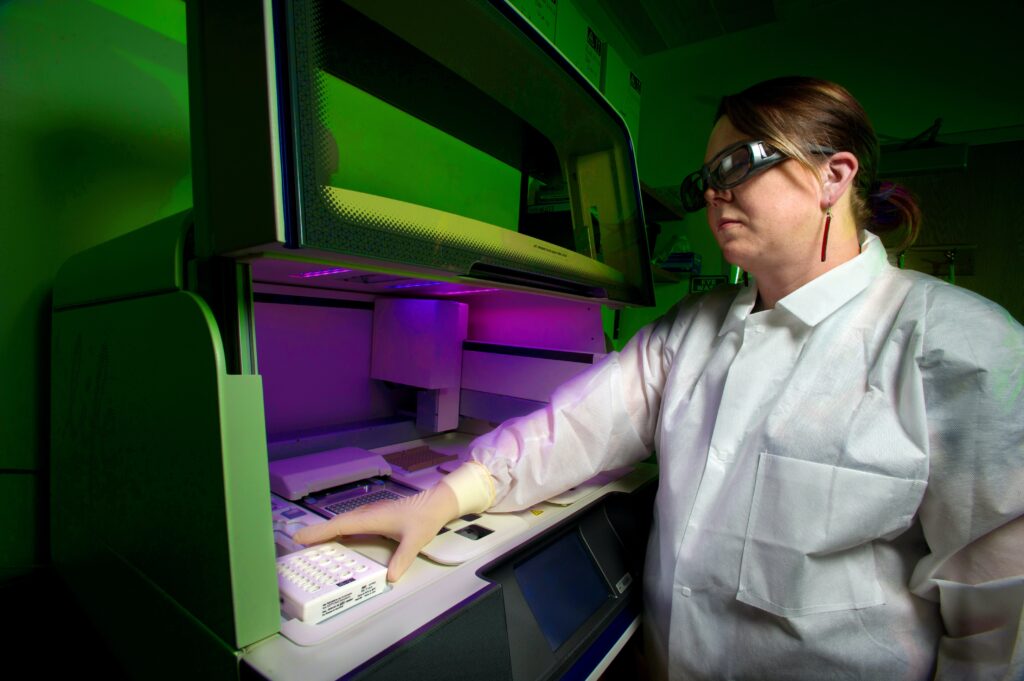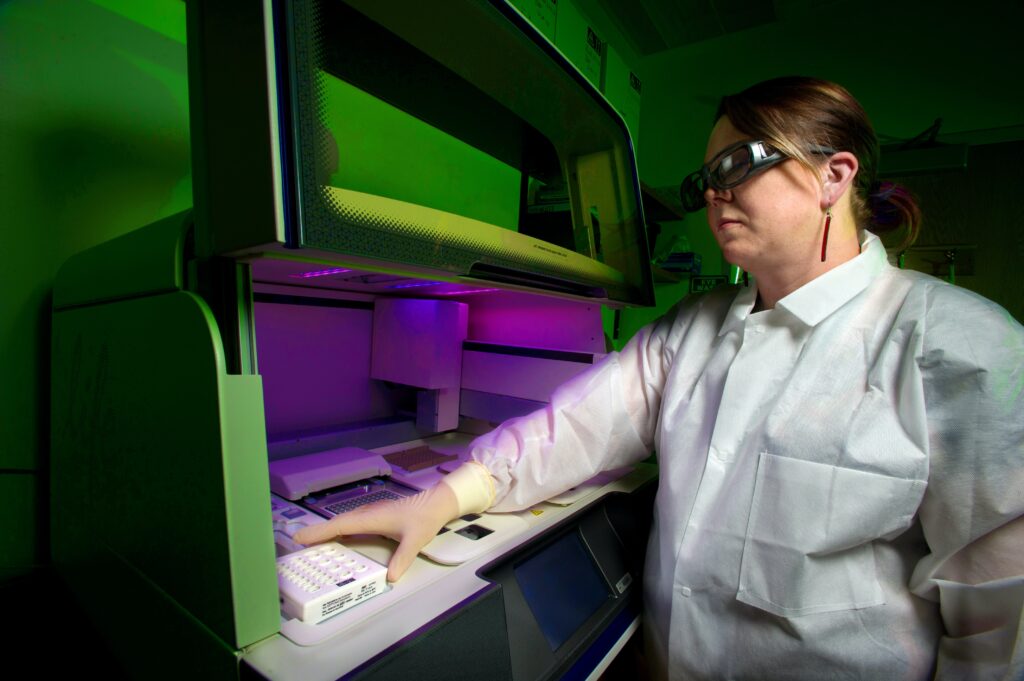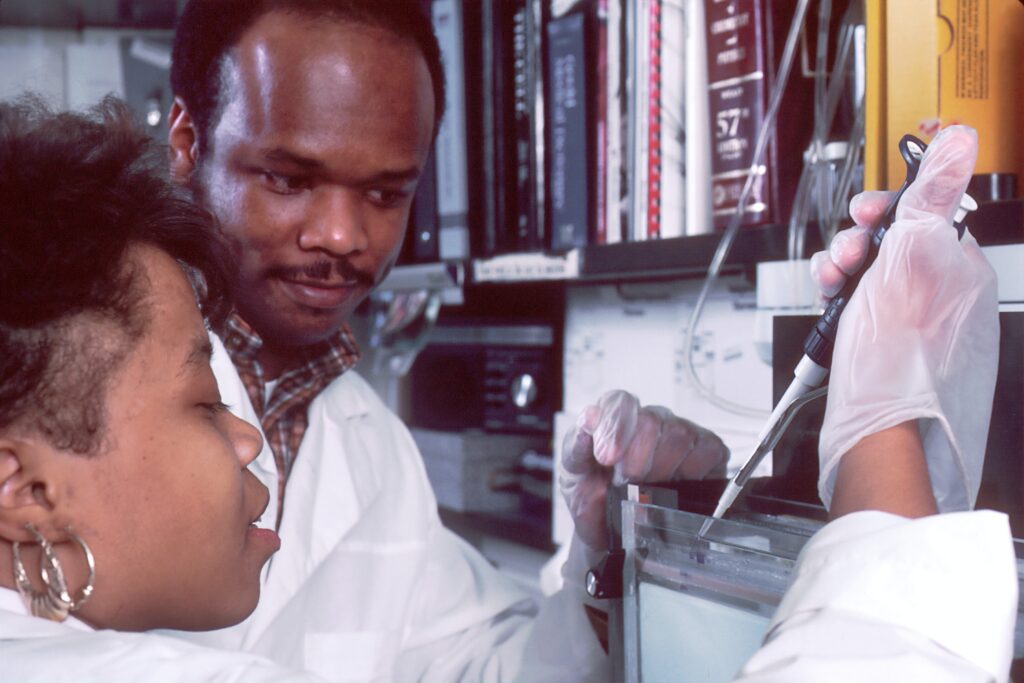Healthcare Biotech Deals: FDA Approval and Clinical Trials Impact

The article “Healthcare Biotech Deals: FDA Approval and Clinical Trials Impact” discusses the significant role of FDA approval and clinical trials in the healthcare biotech industry. Most biopharma deals involve companies without products on the market, which means that FDA approval is necessary after costly and time-consuming clinical trials. This article highlights the challenges faced by biotech companies in obtaining FDA approval and the impact it has on the success of mergers and acquisitions in the industry. It provides valuable insights into the complexities of healthcare biotech deals and the importance of regulatory processes in this sector.
Healthcare Biotech Deals

FDA Approval and Clinical Trials Impact
In the world of healthcare biotech deals, obtaining FDA approval and conducting clinical trials play a vital role in the success of companies. This article will provide an overview of biopharma deals, the impact of FDA approval, challenges in clinical trials, recent healthcare biotech deals, the role of private equity, the FDA approval process, clinical trials and patient recruitment, market access and reimbursement, and future trends in healthcare biotech deals.
Overview of Biopharma Deals
Biopharma deals often involve companies that do not have any products on the market. These companies rely on FDA approval to bring their products to market. The process of obtaining FDA approval is complex and time-consuming, requiring extensive clinical trials to demonstrate safety and efficacy.
FDA Approval Process
The FDA approval process is a crucial step in bringing new drugs and medical devices to market. It involves several stages, starting with preclinical testing, where the drug or device is tested in the lab and on animals. Once the preclinical testing is successful, the company can submit an Investigational New Drug (IND) application to the FDA to begin clinical trials.
Costly and Time-Consuming Clinical Trials
Clinical trials are a critical part of the FDA approval process. They involve testing the drug or device on human subjects to evaluate its safety and efficacy. Clinical trials can be extremely costly and time-consuming, often taking several years to complete. Companies must ensure regulatory compliance, recruit and retain participants, and navigate ethical considerations during these trials.
Impact of FDA Approval
FDA approval is a significant milestone for biopharma companies. It ensures the safety and efficacy of the product, instilling confidence in both healthcare providers and patients. FDA approval also opens the doors to market access and reimbursement, allowing the company to generate revenue from their product.
Ensuring Safety and Efficacy
FDA approval ensures that the drug or device has been thoroughly tested and meets the agency’s rigorous standards for safety and efficacy. This provides reassurance to healthcare providers and patients that the product is reliable and effective in treating their medical condition.

Market Access and Reimbursement
FDA approval is a crucial step in gaining market access and reimbursement for biotech companies. Without FDA approval, healthcare providers may be hesitant to prescribe or use the product, and insurance companies may not provide coverage or reimbursement. FDA approval increases the chances of market adoption and revenue generation.
Potential for Increased Revenue
FDA approval opens up opportunities for increased revenue for biotech companies. With approval, companies can market and sell their products to healthcare providers and patients, generating sales and profits. The potential for increased revenue also attracts investors and can lead to further growth and expansion opportunities.
Challenges in Clinical Trials
Clinical trials pose various challenges for biotech companies. These challenges include the high costs associated with conducting trials, ensuring regulatory compliance, and recruiting and retaining participants.
Cost and Time-Intensive
Clinical trials can be extremely costly, often requiring significant financial investment from biotech companies. The costs include research and development, hiring and training staff, conducting tests and procedures, monitoring participants, and analyzing data. Additionally, these trials can take several years to complete, prolonging the time it takes to bring a product to market.
Regulatory Compliance
Regulatory compliance is a critical aspect of conducting clinical trials. Biotech companies must adhere to FDA regulations and guidelines throughout the trial process. These regulations include criteria for participant selection, ethical considerations, data collection and analysis, and reporting adverse events. Failure to comply with these regulations can result in delays or even the termination of trials.
Recruitment and Retention of Participants
Recruiting and retaining participants for clinical trials can be challenging. Biotech companies must identify and recruit suitable candidates who meet the trial’s eligibility criteria. Additionally, they must ensure that participants remain engaged and committed throughout the trial, as dropouts can negatively impact the trial’s results. Recruitment and retention strategies, such as patient education and outreach programs, are essential to overcome these challenges.

Recent Healthcare Biotech Deals
The healthcare biotech industry has seen significant activity in recent years, with major IPOs, mergers and acquisitions (M&A), and investment trends in biotech companies.
Major IPOs in 2023
The year 2023 witnessed several major IPOs in the healthcare biotech sector. Companies like Hamilton and Cargo debuted in some of the last major IPOs of the year, attracting significant investor interest. These IPOs have the potential to generate substantial capital for the companies and further propel their growth and development.
M&A Activity in the Healthcare Sector
Mergers and acquisitions have been a common occurrence in the healthcare sector, including the biotech industry. Companies seek strategic partnerships and acquisitions to expand their product portfolios, increase market share, and gain access to new technologies and research platforms. M&A activity in the healthcare biotech sector has the potential to shape the industry’s landscape and drive innovation and growth.
Investment Trends in Biotech Companies
Investors have shown a keen interest in biotech companies, recognizing the potential for significant returns on investment. Investment trends in the biotech industry include funding rounds, venture capital investments, and private equity investments. These investments provide much-needed capital for research and development, clinical trials, and expansion efforts.
Role of Private Equity in Healthcare Biotech Deals
Private equity plays a significant role in healthcare biotech deals, providing financial support and expertise to biotech companies. Private equity firms invest in biotech companies with the aim of generating significant returns on their investments.
Investment Strategies in Biotech Companies
Private equity firms employ various investment strategies when investing in biotech companies. These strategies include funding early-stage companies with promising technologies, providing capital for late-stage clinical trials, and supporting companies in need of financial restructuring or turnaround efforts. Each strategy carries its own risks and potential for returns.

Risks and Returns for Private Equity Investors
Investing in biotech companies comes with inherent risks and rewards. Private equity investors must carefully evaluate the scientific and commercial potential of the company’s product portfolio, assess regulatory and market risks, and consider the company’s management team and track record. Successful investments can yield substantial returns, but failures can result in significant losses.
Impact on Innovation and Drug Development
Private equity investments can have a significant impact on innovation and drug development in the biotech industry. Investments provide much-needed capital for research and development efforts, allowing companies to explore groundbreaking technologies and therapies. Private equity support can accelerate drug development timelines, leading to the introduction of innovative treatments into the market.
FDA Approval Process
The FDA approval process is comprehensive and involves several stages, including preclinical testing, IND application, clinical trials phases, the new drug application (NDA), and FDA review and approval.
Preclinical Testing
Preclinical testing involves laboratory and animal studies to determine the safety and effectiveness of the drug or device. These tests provide valuable data on the product’s potential benefits and side effects, guiding subsequent stages of development.
IND Application
Once preclinical testing is successful, the company can submit an IND application to the FDA. The IND application contains detailed information about the drug or device, including its composition, intended use, proposed clinical trials, and manufacturing processes. FDA review and approval of the IND application permit the company to move forward with clinical trials.
Clinical Trials Phases
Clinical trials are conducted in several phases to assess the product’s safety and efficacy in humans. Phase 1 trials involve a small number of healthy volunteers to evaluate the drug or device’s safety, dosage, and potential side effects. Phase 2 trials expand the study population to evaluate the product’s efficacy and further assess its safety. Phase 3 trials involve a larger sample size to confirm the product’s effectiveness, monitor side effects, and compare it to existing treatments. Successful completion of these trials leads to the preparation of the NDA.

New Drug Application
The NDA is a comprehensive submission that includes data and information on the drug or device’s safety and efficacy gathered from preclinical and clinical trials. The NDA provides detailed information on the product’s composition, manufacturing, and proposed labeling. The FDA reviews the NDA and assesses the product’s benefits and risks to determine whether it should be approved for marketing.
FDA Review and Approval
The FDA review process involves a thorough evaluation of the NDA, including the data presented, clinical trial results, manufacturing processes, and proposed labeling. The FDA may request additional information or clarification during the review process, which can prolong the review timeline. If the FDA determines that the benefits of the product outweigh its risks, it grants approval, allowing the company to market the product in the United States.
Clinical Trials and Patient Recruitment
Designing and conducting clinical trials require careful planning and consideration. It is essential to design trials that produce reliable outcomes while ensuring patient safety and regulatory compliance.
Designing Clinical Trials
Clinical trials must be meticulously designed to answer specific research questions and generate meaningful data. Design considerations include the trial’s objectives, sample size, participant demographics, inclusion and exclusion criteria, trial duration, and outcome measures. A well-designed trial minimizes bias and produces reliable results.
Criteria for Patient Selection
Patient selection criteria are crucial in clinical trials to ensure the safety and effectiveness of the product being tested. These criteria define the characteristics and medical conditions that potential participants must have or exclude. Inclusion and exclusion criteria help ensure homogeneity among participants, leading to more accurate data interpretation.
Informed Consent Process
Informed consent is a vital ethical consideration in clinical trials. Participants must be fully informed about the trial’s purpose, procedures, potential risks, and benefits before providing consent to participate. The informed consent process involves providing participants with all necessary information, answering their questions, and allowing them sufficient time to make an informed decision.
Recruiting and Retaining Participants
Recruiting and retaining participants in clinical trials can be challenging. Biotech companies must develop effective strategies to reach potential participants and provide incentives for participation. Participant retention strategies involve maintaining regular communication, ensuring participant comfort and convenience, and addressing any concerns or issues that may arise during the trial.
Market Access and Reimbursement
Market access and reimbursement are critical factors for the commercial success of biotech products. Achieving reimbursement and securing payer coverage are complex processes that involve navigating pricing, health technology assessments, and value-based agreements.
Payer Coverage and Reimbursement
Payer coverage determines whether a healthcare product or service is eligible for reimbursement by insurance companies or government payers. Biotech companies must demonstrate the clinical and economic value of their products to secure coverage and reimbursement. This involves providing robust clinical trial data, cost-effectiveness analyses, and evidence of improved patient outcomes.
Health Technology Assessments
Health technology assessments (HTAs) evaluate the clinical and economic value of healthcare interventions, including biotech products. HTAs consider factors such as safety, clinical efficacy, cost-effectiveness, and broader societal impacts to determine whether a product should be reimbursed. Biotech companies must engage with HTA agencies to navigate the assessment process effectively.
Pricing and Value-based Agreements
Pricing biotech products is a complex process that involves considering research and development costs, production costs, potential market demand, and competitor pricing. Value-based agreements, where reimbursement is tied to patient outcomes or performance, are becoming increasingly common. These agreements align incentives between biotech companies and payers, ensuring that products are reimbursed based on their demonstrated value.
Future Trends in Healthcare Biotech Deals
The healthcare biotech industry continues to evolve, with several future trends shaping the landscape. These trends include emerging therapeutic areas, investment in artificial intelligence and machine learning, and collaborations and partnerships within the biotech industry.
Emerging Therapeutic Areas
Advancements in biotechnology and medical research are opening up new therapeutic areas for exploration. Areas such as gene therapy, cell therapy, immunotherapy, and precision medicine hold immense promise for treating previously untreatable conditions. Biotech companies are investing in these emerging therapeutic areas to develop innovative and potentially life-changing treatments.
Investment in Artificial Intelligence and Machine Learning
Artificial intelligence (AI) and machine learning (ML) are revolutionizing the healthcare industry, including biotech. These technologies can analyze large datasets, identify patterns, and make predictions, accelerating drug discovery and development processes. Biotech companies are investing in AI and ML to improve target identification, optimize clinical trial design, and personalize treatment approaches.
Collaborations and Partnerships in the Biotech Industry
Collaborations and partnerships within the biotech industry are becoming increasingly common. Biotech companies are joining forces with academic institutions, research organizations, and other industry players to leverage combined expertise and resources. These collaborations facilitate knowledge sharing, accelerate research and development, and enhance the chances of success for innovative therapies.
In conclusion, healthcare biotech deals heavily rely on FDA approval and the outcomes of clinical trials. FDA approval ensures the safety and efficacy of biotech products, opening up market access and reimbursement opportunities. However, clinical trials pose challenges in terms of cost, regulatory compliance, and patient recruitment and retention. Recent healthcare biotech deals have seen major IPOs, M&A activity, and investment trends. Private equity plays a crucial role in providing funding and expertise in healthcare biotech deals. The FDA approval process involves several stages, and clinical trials require careful planning and patient recruitment strategies. Market access and reimbursement are essential for the commercial success of biotech products. Finally, future trends in healthcare biotech deals include emerging therapeutic areas, investment in AI and ML, and collaborations and partnerships within the industry.




